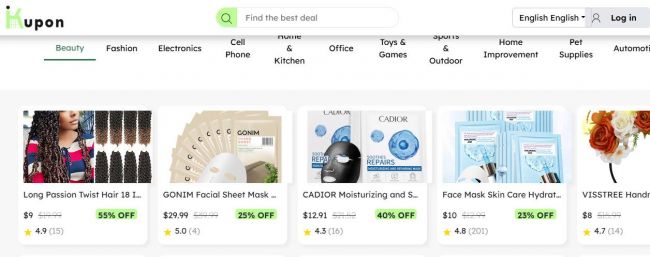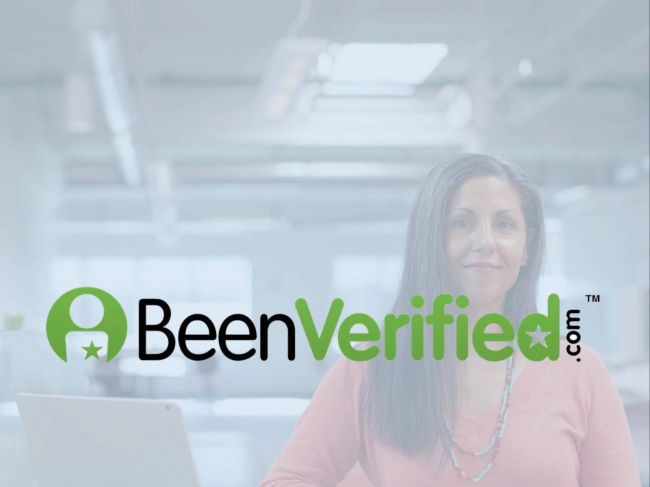Welspun Living is part of the larger Welspun Group, a multinational textile conglomerate. The company operates in the home textiles segment, manufacturing and distributing products such as towels, bed linen, rugs, carpets, and flooring solutions. Its reach extends to over 50 countries, supplying both retail consumers and institutional clients.
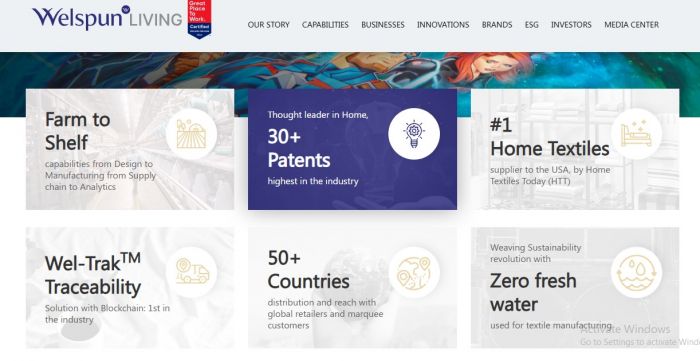
Company and Product Range
Welspun Living’s portfolio includes:
- Bed linen, comforters, and duvets
- Bath towels, robes, and mats
- Rugs and carpets
- Flooring products
- Hospitality and institutional textiles
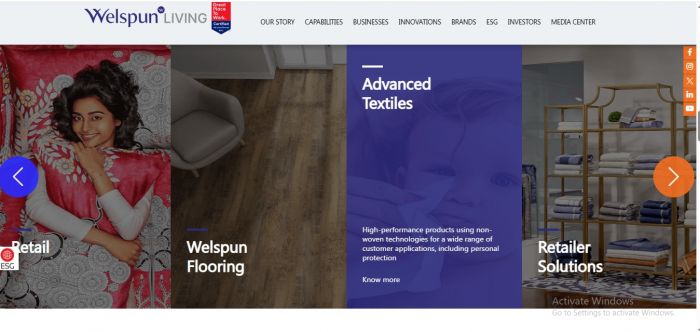
The company also serves large retail chains and hotel groups internationally, in addition to selling directly to consumers via its website.
Product Technology and Features
Welspun incorporates several proprietary technologies in its textiles, such as:
- HygroCotton® – a patented spinning process designed to make towels more absorbent and softer after multiple washes.
- Wel-Trak® – a blockchain-based traceability system that provides details of the product’s supply chain journey.
- Nanocore™ – a fabric barrier aimed at protecting bedding from allergens and dust mites.
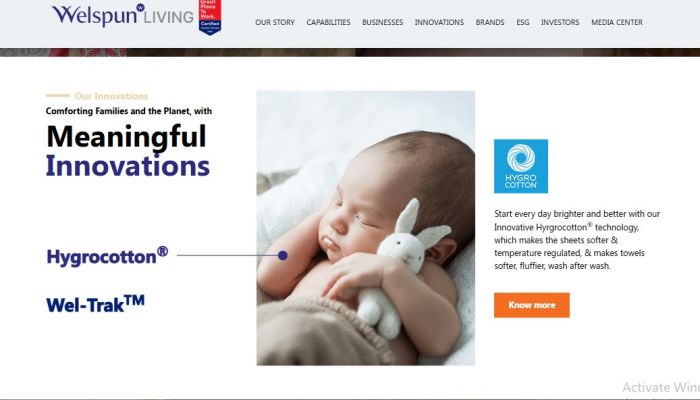
Independent verification of these claims is limited, but the technologies are documented in company materials and patents.
Sustainability and Environmental Impact
The company reports several sustainability measures:
- A claimed 74% reduction in water usage in towel production compared to conventional methods.
- Integration of solar and wind power in manufacturing.
- Cotton sourcing through initiatives like the Better Cotton Initiative (BCI) and organic certification programs.
- Fabric recycling initiatives are aimed at reusing post-consumer textiles.
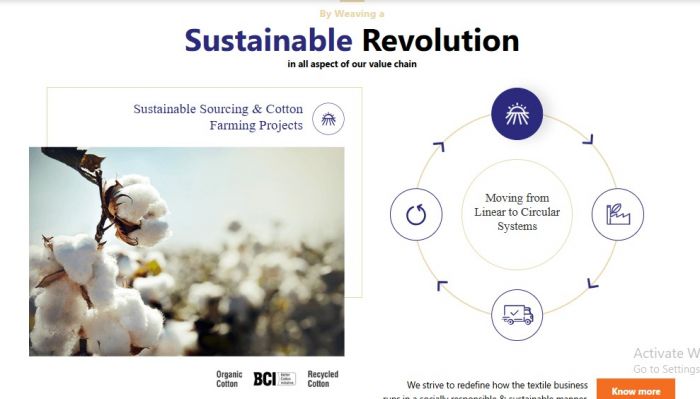
While these measures suggest an environmental focus, the company’s sustainability data comes from self-reported figures, and third-party audits are not always publicly available.
Customer Feedback and Reception
Available online reviews from customers indicate recurring themes:
- Positive mentions of fabric softness and durability.
- Mixed opinions on pricing, with some customers noting it is higher than average for the category.
- Occasional feedback on limited offline availability in certain regions.
Reviews vary depending on product type and region, making it difficult to form a single conclusion on customer satisfaction.
Pricing and Positioning
Welspun Living products are priced in the mid-to-premium segment. For example:
- Towels: approximately ₹800–₹1,500 ($10–$20)
- Bed linen: approximately ₹3,000–₹6,000 ($40–$80)
This positions the brand above mass-market options but below high-end luxury textile labels. The pricing reflects the inclusion of proprietary technologies and the company’s stated sustainability measures.
Global Operations and B2B Supply
Welspun is a significant supplier to major retailers such as Walmart, Macy’s, and Costco, as well as hotel groups including Marriott, Hilton, and Starwood. This B2B presence allows its products to be tested in high-usage environments before reaching retail consumers.
Recent Developments
The company has been investing in:
- Smart textiles, such as temperature-regulating fabrics and antimicrobial finishes.
- Recyclable flooring materials aimed at reducing waste in the home interiors market.
- Expansion of direct-to-consumer e-commerce, offering certain product lines exclusively online.
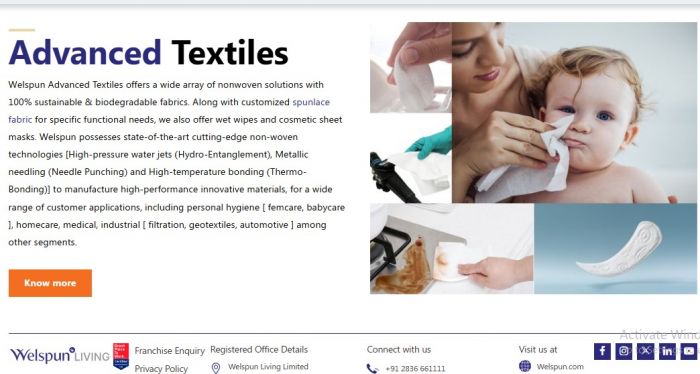
Traceability in Practice
The Wel-Trak® system allows customers to scan a code on certain products and view their documented supply chain journey, from cotton farming to final manufacturing. This is an uncommon level of supply chain visibility in the home textiles industry, though the usefulness to end consumers depends on the depth of available data.
Hospitality-Grade Offerings
Welspun sells some of its hospitality-focused products, originally developed for hotels, directly to consumers. These products follow specifications used in commercial hospitality environments but are marketed for home use.
Summary Assessment
Welspun Living operates at the intersection of large-scale manufacturing and technology integration in textiles. It has a global supply footprint and invests in proprietary product innovations and sustainability programs.
Strengths include its traceability system, integration of renewable energy, and broad product range. Limitations include premium pricing, variable offline availability, and reliance on self-reported sustainability data.
Post Comment
Be the first to post comment!

